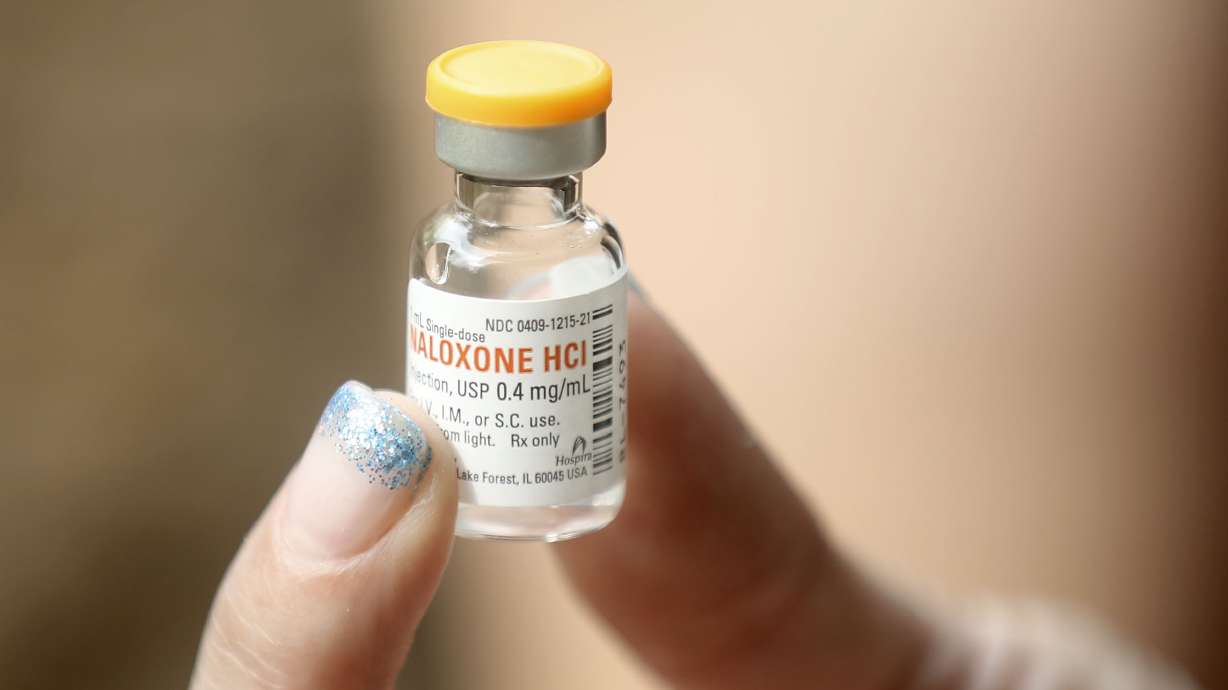Estimated read time: 4-5 minutes
- Utah Naloxone and Intermountain Health have saved over 12,500 lives with naloxone.
- The program distributes naloxone kits and educates on opioid overdose risks and safety.
- Utah's overdose death rate improved from 4th to 42nd nationally since 2014 legislation.
SALT LAKE CITY — Opioid overdose reversal medication naloxone has now saved the lives of over 12,500 Utahns, marking a significant milestone in the state's battle against opioid overdose deaths.
The milestone comes as a result of the combined effort between Utah Naloxone, a nonprofit dedicated to expanding naloxone access, and Intermountain Health's Opioid Education and Naloxone Distribution program. They also work with Utah law enforcement partners, who are often first responders to opioid overdose events. Of the 12,500 lives saved by naloxone, more than 1,000 received naloxone administered by law enforcement officers.
Intermountain Health's Opioid Education and Naloxone Distribution program not only works to distribute free naloxone kits to community members but aims to provide education and reduce the stigma surrounding opioid overdose, according to Lisa Nichols, vice president of community health at Intermountain Health.
"To be really clear, you don't have to have a substance use disorder to die from an overdose," said Nichols. "People receive opioids all of the time, post-surgery or post-dental care. So we also want people to understand the risk. And that's why the education is important, because someone will get that from their physician and think, 'It was it was prescribed; I'm taking it as prescribed; why would I be at risk?' ... It's just kind of opening up the conversation to make sure that everyone knows that if you're taking an opioid or you if you have opioids in your home that are available, you are at risk."
Drug overdose is the leading cause of accidental deaths in Utah — surpassing motor vehicle crashes, suffocation and drowning — according to a report from the Utah Department of Health and Human Services. Of all the substances that lead to fatal overdose, the report cites the synthetic opioid fentanyl as the most frequent cause.
Opioid medications, like oxycodone and morphine, are pain management options that can be prescribed after surgery or major injury. Even when taking these medications as prescribed, there can still be risks for some. This includes opioid-induced respiratory depression, which occurs when an opioid suppresses a person's drive to breathe, sometimes resulting in death.
Naloxone works by replacing opioids' connection to receptors in the body, blocking the drug's effects and reversing overdose in minutes, according to the National Institute of Drug Abuse. The medication can be used to reverse opioid overdose due to substance abuse as well as the effects of opioid-induced respiratory depression.
While opioids can be used with no complications for some, Nichols explains naloxone is an option to increase safety while using the medication, and education about opioids helps patients make better-informed decisions.
"We always want to empower patients and consumers, so we encourage people to get a naloxone kit ... but we also encourage them to manage their own health care," said Nichols. "So if a physician is prescribing opioids, say ... 'Is there an alternative? How does this make me at risk?' Just make sure people are actively engaged in their own health care and keeping their family safe."
Utah was ranked No. 4 in the nation for overdose death rates in 2014 when legislators passed the Opiate Overdose Emergency Treatment Act and expanded naloxone access across the state, according to Jennifer Plumb, medical director of Utah Naloxone. Plumb started Utah Naloxone with her brother in 2015 and has worked with partners like Intermountain Health to provide naloxone kits and education for the last decade. Now, as of 2021, Utah ranks No. 42 for overdose deaths.
"I'm super proud of the state for the culture shift that's been a part of this decade," said Plumb, who is also a state senator. "I think that Intermountain Health should be celebrated for both their continued commitment as well as, you know, they've bought into something. They were early adopters and ... it's easy to be a fair-weather friend, but they stay committed."
Utah Naloxone uses donations from Intermountain Health and other donors to buy naloxone kits that can be provided to the public for free. For more information on where to find free naloxone resources, visit the Utah Naloxone website. Intermountain Health also offers naloxone on demand through its website for the cost of the medication without service fees.
While the issue has improved over the years, Plumb says there is still more work to do in educating residents and providing resources. Utah Naloxone will host a virtual naloxone training on Tuesday, April 8, where participants can learn how to help someone at risk of opioid overdose and receive a free injectable naloxone kit. Pre-registration is available online here.









